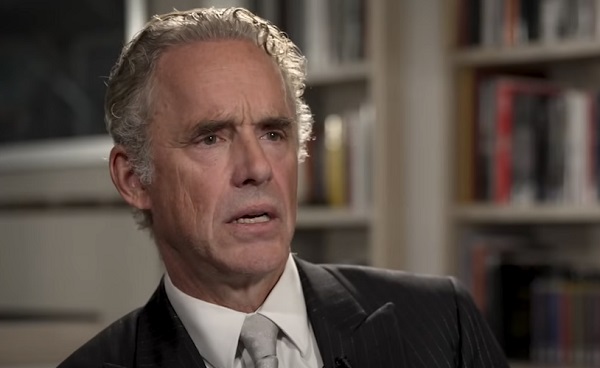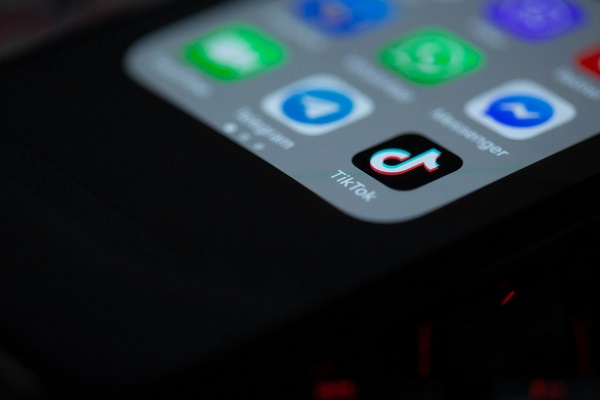Internet
Jordan Peterson moves to US, says Trudeau’s Canada may soon become ‘totalitarian hell hole’

From LifeSiteNews
Popular Canadian psychologist Dr. Jordan Peterson has moved to the United States, citing new censorship laws in the works from the Trudeau government, which he said would make living in Canada akin to being in a ‘totalitarian hell hole.’
Popular Canadian psychologist Dr. Jordan Peterson has moved to the United States, citing as one reason new censorship laws in the works from the Trudeau government, which he said would make living in Canada akin to being in a “totalitarian hell hole.”
Peterson made the announcement in a recent podcast with his daughter, Mikhaila Peterson Fuller. The father and daughter talked about a host of different things, but Mikhaila at one point said, “Welcome to moving to America formally.”
“I guess that’s what happened, isn’t it?” said Peterson. “Is this the big announcement?”
Thanks to the authoritarian Liberal thugs in our government, Canada has lost a national treasure.
Jordan Peterson has announced that he is officially moving to the States.
This made me sad. pic.twitter.com/wlHFAjiZ82
— 🅾️ Kat Kanada (@KatKanada_TM) December 12, 2024
When it comes to the Trudeau government, he took direct aim at its Bill C-63, or the Online Harms Act. Put forth under the guise of protecting children from exploitation online, the bill seeks to expand the scope of “hate speech” prosecutions, and even desires to target such speech retroactively.
The law also calls for the creation of a Digital Safety Commission, a digital safety ombudsperson, and the Digital Safety Office, all tasked with policing internet content.
“[With] the new legislation that the Liberals are attempting to push through Bill C-63, I’d be living in a totalitarian hell hole if that legislation passes, and it could well pass,” he said.
“The tax situation is out of hand. The government in Canada at the federal level is incompetent beyond belief and it’s become uncomfortable for me in my neighborhood in Toronto,” he added.
He went on to note how living in the United States, where his daughter Mikhaila resides, comes with “decided advantages.”
Peterson observed that another reason for ditching his hometown of Toronto for sunny Florida was his ongoing battle with the College of Psychologists and Behavioural Analysts of Ontario.
“The issue with the College of Psychologists is very annoying, to say the least,” he said.
He has been embattled with the CPO after it mandated he undergo social media “training” to keep his license after he made posts on X, formerly Twitter, criticizing Trudeau and LGBT activists. He recently noted how the CPO offered him a deal to “be bought” in which the legal fees owed to them after losing his court challenge could be waived, but only if he agreed to quit his job as a psychologist.
Peterson recently demanded an apology from Trudeau after the Canadian prime minister accused him of being funded by Russian state media.
For his part, he has been critical of Trudeau and his Liberal government for years.
Censorship Industrial Complex
Welcome to Britain, Where Critical WhatsApp Messages Are a Police Matter

By
“It was just unfathomable to me that things had escalated to this degree,”
“We’d never used abusive or threatening language, even in private.”
|
You’d think that in Britain, the worst thing that could happen to you after sending a few critical WhatsApp messages would be a passive-aggressive reply or, at most, a snooty whisper campaign. What you probably wouldn’t expect is to have six police officers show up on your doorstep like they’re hunting down a cartel. But that’s precisely what happened to Maxie Allen and Rosalind Levine — two parents whose great offense was asking some mildly inconvenient questions about how their daughter’s school planned to replace its retiring principal.
This is not an episode of Black Mirror. This is Borehamwood, Hertfordshire, 2025. And the parents in question—Maxie Allen, a Times Radio producer, and Rosalind Levine, 46, a mother of two—had the gall to inquire, via WhatsApp no less, whether Cowley Hill Primary School was being entirely above board in appointing a new principal.
What happened next should make everyone in Britain pause and consider just how overreaching their government has become. Because in the time it takes to send a meme about the school’s bake sale, you too could be staring down the barrel of a “malicious communications” charge.
The trouble started in May, shortly after the school’s principal retired. Instead of the usual round of polite emails, clumsy PowerPoints, and dreary Q&A sessions, there was… silence. Maxie Allen, who had once served as a school governor—so presumably knows his way around a budget meeting—asked the unthinkable: when was the recruitment process going to be opened up?
A fair question, right? Not in Borehamwood, apparently. The school responded not with answers, but with a sort of preemptive nuclear strike.
Jackie Spriggs, the chair of governors, issued a public warning about “inflammatory and defamatory” social media posts and hinted at disciplinary action for those who dared to cause “disharmony.” One imagines this word being uttered in the tone of a Bond villain stroking a white cat.
|
 |
Parents Allen and Levine were questioned by police over their WhatsApp messages. |
|
For the crime of “casting aspersions,” Allen and Levine were promptly banned from the school premises. That meant no parents’ evening, no Christmas concert, no chance to speak face-to-face about the specific needs of their daughter Sascha, who—just to add to the bleakness of it all—has epilepsy and is registered disabled.
So what do you do when the school shuts its doors in your face? You send emails. Lots of them. You try to get answers. And if that fails, you might—just might—vent a little on WhatsApp.
But apparently, that was enough to earn the label of harassers. Not in the figurative, overly sensitive, “Karen’s upset again” sense. No, this was the actual, legal, possibly-prison kind of harassment.
Then came January 29. Rosalind was at home sorting toys for charity—presumably a heinous act in today’s climate—when she opened the door to what can only be described as a low-budget reboot of Line of Duty. Six officers. Two cars. A van. All to arrest two middle-aged parents whose biggest vice appears to be stubborn curiosity.
“I saw six police officers standing there,” she said. “My first thought was that Sascha was dead.”
Instead, it was the prelude to an 11-hour ordeal in a police cell. Eleven hours. That’s enough time to commit actual crimes, be tried, be sentenced, and still get home in time for MasterChef.
Allen called the experience “dystopian,” and, for once, the word isn’t hyperbole. “It was just unfathomable to me that things had escalated to this degree,” he said. “We’d never used abusive or threatening language, even in private.”
Worse still, they were never even told which communications were being investigated. It’s like being detained by police for “vibes.”
One of the many delightful ironies here is that the school accused them of causing a “nuisance on school property,” despite the fact that neither of them had set foot on said property in six months.
Now, in the school’s defense—such as it is—they claim they went to the police because the sheer volume of correspondence and social media posts had become “upsetting.” Which raises an important question: when did being “upsetting” become a police matter?
What we’re witnessing is not a breakdown in communication, but a full-blown bureaucratic tantrum. Instead of engaging with concerned parents, Cowley Hill’s leadership took the nuclear option: drag them out in cuffs and let the police deal with it.
Hertfordshire Constabulary, apparently mistaking Borehamwood for Basra, decided this was a perfectly normal use of resources. “The number of officers was necessary,” said a spokesman, “to secure electronic devices and care for children at the address.”
Right. Nothing says “childcare” like watching your mom get led away in handcuffs while your toddler hides in the corner, traumatized.
After five weeks—five weeks of real police time, in a country where burglaries are basically a form of inheritance transfer—the whole thing was quietly dropped. Insufficient evidence. No charges. Not even a slap on the wrist.
So here we are. A story about a couple who dared to question how a public school was run, and ended up locked in a cell, banned from the school play, and smeared with criminal accusations for trying to advocate for their disabled child.
This is Britain in 2025. A place where public institutions behave like paranoid cults and the police are deployed like private security firms for anyone with a bruised ego. All while the rest of the population is left wondering how many other WhatsApp groups are one message away from a dawn raid.
Because if this is what happens when you ask a few inconvenient questions, what’s next? Fingerprinting people for liking the wrong Facebook post? Tactical units sent in for sarcastic TripAdvisor reviews?
It’s a warning. Ask the wrong question, speak out of turn, and you too may get a visit from half the local police force.
|
|
|
|
Reclaim The Net values your free speech and privacy. Each issue we publish is a commitment to defend these critical rights, providing insights and actionable information to protect and promote liberty in the digital age.
Despite our wide readership, less than 0.2% of our readers contribute financially. With your support, we can do more than just continue; we can amplify voices that are often suppressed and spread the word about the urgent issues of censorship and surveillance. Consider making a modest donation — just $5, or whatever amount you can afford. Your contribution will empower us to reach more people, educate them about these pressing issues, and engage them in our collective cause. Thank you for considering a contribution. Each donation not only supports our operations but also strengthens our efforts to challenge injustices and advocate for those who cannot speak out. Thank you.
|
Business
Vice President Vance expects framework of TikTok deal by April 5

 MxM News
MxM News
Quick Hit:
Vice President JD Vance expects a framework agreement to resolve TikTok’s ownership by April 5, as the Biden-era law requiring its Chinese owner, ByteDance, to sell the app or face a ban looms. President Donald Trump had previously delayed enforcement of the law, allowing more time for negotiations. The White House is in discussions with multiple potential buyers to establish an American-owned version of the social media platform.
Key Details:
-
Vice President Vance stated that a high-level agreement will likely be reached that meets national security concerns while creating a U.S.-based TikTok enterprise.
-
President Trump signed an executive order in January, delaying the enforcement of a law requiring ByteDance to sell TikTok or face a ban.
-
The White House is engaged with four interested groups in potential acquisition talks.
Diving Deeper:
The fate of TikTok in the U.S. has been a subject of intense debate due to concerns over data security and its ties to the Chinese Communist Party through ByteDance. The law, originally passed under the Biden administration, sought to force the sale of the app due to fears that American user data could be accessed by the Chinese government. However, after taking office, President Trump extended the enforcement deadline by 75 days, giving room for negotiations.
Vice President Vance, speaking to NBC News aboard Air Force Two, expressed confidence that an agreement will be reached by April 5, though some details may still need to be finalized afterward. He and national security adviser Michael Waltz have been leading efforts to facilitate a sale that would address national security concerns while preserving TikTok’s massive American user base.
President Trump revealed last weekend that his administration is in talks with four different groups interested in acquiring the app. While the specifics of these negotiations remain undisclosed, the administration has made it clear that TikTok must operate as a distinct American entity to remain in the U.S. market.
As the deadline approaches, ByteDance has not publicly commented on the ongoing discussions. However, with bipartisan concerns over the influence of the Chinese Communist Party on U.S. technology platforms, the expectation is that any deal will include significant safeguards to prevent foreign interference in the app’s operations.
The coming weeks will determine whether a sale materializes or if further action will be needed to enforce the law. Either way, the Trump administration has signaled its commitment to ensuring that TikTok is no longer under the control of a hostile foreign adversary.
-

 Economy2 days ago
Economy2 days agoSupport For National Pipelines And LNG Projects Gain Momentum, Even In Quebec
-

 Health2 days ago
Health2 days agoDr. Pierre Kory Exposes the Truth About the Texas ‘Measles Death’ Hoax
-

 Business1 day ago
Business1 day agoDOGE discovered $330M in Small Business loans awarded to children under 11
-

 Economy2 days ago
Economy2 days agoSolar and Wind Power Are Expensive
-

 Business2 days ago
Business2 days agoWhy a domestic economy upgrade trumps diversification
-

 COVID-1924 hours ago
COVID-1924 hours ago17-year-old died after taking COVID shot, but Ontario judge denies his family’s liability claim
-

 2025 Federal Election1 day ago
2025 Federal Election1 day agoThe High Cost Of Continued Western Canadian Alienation
-

 Business2 days ago
Business2 days agoAll party leaders must oppose April 1 alcohol tax hike





